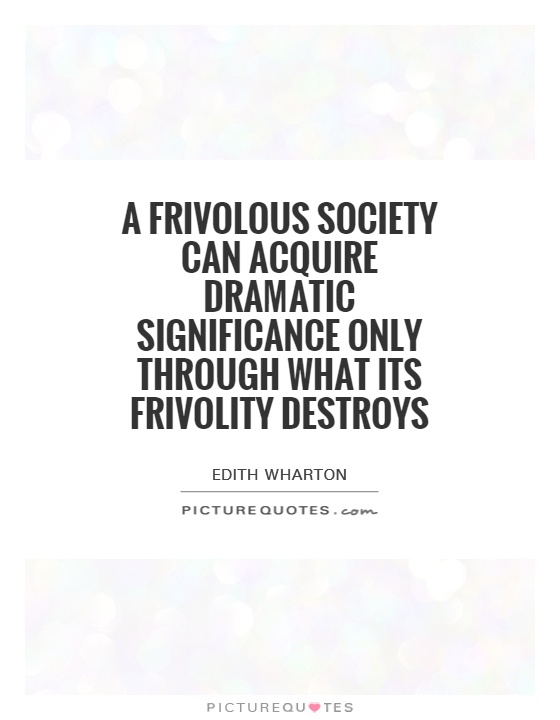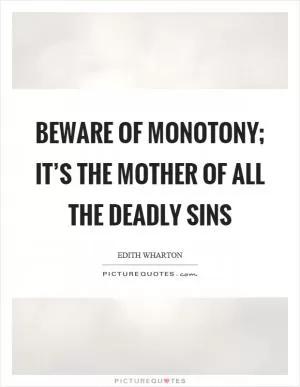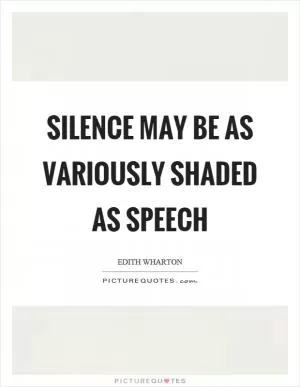A frivolous society can acquire dramatic significance only through what its frivolity destroys

A frivolous society can acquire dramatic significance only through what its frivolity destroys
In the context of Edith Wharton's works, the quote "A frivolous society can acquire dramatic significance only through what its frivolity destroys" holds a profound truth. Wharton, a prominent American novelist known for her keen observations of the upper-class society in the early 20th century, often depicted the consequences of frivolity and superficiality in her novels. Through her characters and their actions, she explored the destructive nature of a society that values appearances over substance.One of Wharton's most famous works, "The Age of Innocence," is a prime example of how frivolity can lead to dramatic consequences. Set in the high society of New York City in the 1870s, the novel follows the story of Newland Archer, a young man torn between his duty to his family and his desire for a forbidden love. The society depicted in the novel is one of strict social norms, where appearances and reputation are valued above all else. The characters are consumed by their own frivolity, constantly seeking to maintain their status and uphold the facade of respectability.
Through the characters in "The Age of Innocence," Wharton shows how frivolity can destroy relationships, lead to loneliness and isolation, and ultimately result in a loss of authenticity and meaning in life. Newland Archer, the protagonist, is trapped in a loveless marriage and unable to pursue his true desires because of the expectations of society. His wife, May Welland, is portrayed as a shallow and manipulative character who uses her appearance and social standing to control those around her. The destructive nature of their frivolous society is evident in the way it stifles individuality and forces people to conform to rigid social norms.
Wharton's exploration of frivolity and its consequences in "The Age of Innocence" highlights the emptiness and superficiality of a society that values appearances over genuine human connection. By showing the destructive effects of frivolity on her characters, Wharton ultimately reveals the importance of authenticity, honesty, and true emotional connection in a world dominated by superficiality. Through what its frivolity destroys, a frivolous society can acquire dramatic significance, as Wharton masterfully demonstrates in her novels.












 Friendship Quotes
Friendship Quotes Love Quotes
Love Quotes Life Quotes
Life Quotes Funny Quotes
Funny Quotes Motivational Quotes
Motivational Quotes Inspirational Quotes
Inspirational Quotes